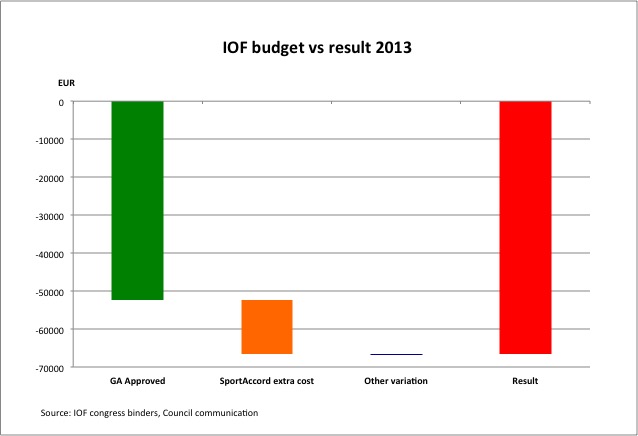A case that may both demonstrate the reason for budget overruns and the general lack of controls within the IOF is the story when Brian Porteous, the President at the time, decided (apparently single handedly) to spend money over the anyhow loss making IOF budget on the SportAccord convention in 2013.
Brian decided to ignore the 2013 budget that was approved in July 2012, just 6 months before. A budget that he himself proposed as Vice President at the time of budget preparation.
The Council members, according to the Council minutes, did not blink, as in many other cases when the President made interesting decisions. The member federations had no meaningful mechanism to react.
As a result of the extra €14,100 spent on the SportAccord Convention the budgeted loss of €52,400 for 2013 has become a loss of €66,600. There was still some reserves left to spend.

Before we get into details of this story, I think that it would be useful to introduce some theoretical background.
The Agency Problem
The core issue around the IOF is what business literature calls the Agency Problem. This is an unavoidable feature of large organisations where owners (shareholders, or in our case 70 member federations) entrust an agent (CEO/President, Board/Council) to run the organization on their behalf. Unavoidably, the two parties will have different interest and the agent will run the organization in a way that is not optimal for the owners. Conflict of interests and moral hazards are frequent problems. The lost value to the owners is called the Agency Cost.

